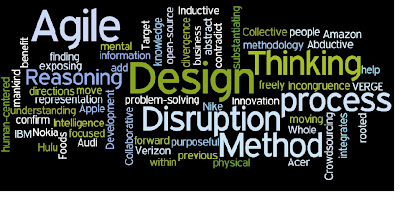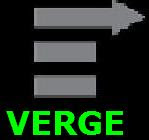Many people can agree that school systems, as well as the American culture in general, teaches kids from the very beginning that to be trulysuccessful you must get good grades through high school, go to a good college (now get a masters), and finally complete your journey by getting a good job. Now, I am not saying that anything is particularly wrong with this, for some people; to be honest I followed this path by graduating high school with honors, graduating from a good college, and then getting my first good job at a respected financial services firm. I will also say that my dream ever since I was a youngster was to own my own business (it didn’t matter what it was), however it seemed that everything I was taught or told growing up was to navigate me away from fulfilling my dream, mostly for my own protection.
AND WHY IS THAT?
This is quite an easy question to answer; the reason everything was encouraging me to not think creatively or to dream big, is that we,Americans, are scared of failure and the “what if”. It seems that we are being brainwashed since elementary age to not think creatively, and to not take chances because we do not want to be wrong. Our school systems, parents, everyone is thinking that they are protecting us by not challenging us and encouraging us to think differently, but all they are really doing is hindering our growth and our ability/talents. Many kids follow the so-called path to success I discussed above, but end up feeling not fulfilled, working in menial jobs for someone else, just putting in time to hopefully, eventually be the one who gets to tell other people what to do. These kids, also end up not knowing who they really are and never find out what they are truly good at or find their true passion. I mean come on people, how many times do you hear people say: “I hate my job” or “work sucks”.
IS THIS THE WORLD WE ARE REALLY LIVING IN?
By enforcing this curriculum, we are truly creating a generation of people that, sorry to say it are robots, and that are afraid to think differently because they do not want to be wrong or fail. We need to realize that this generation are the ones that are going to keep innovating and enriching life for all people, these are the ones that are going to find the cure for cancer, or save the planet if you will. If we take away their creative capacities at an early age, then what will happen? Your guess is as good as mine? I surely do not want to see that day!
Some quotes to back up my rants, then I’ll say why this relates to COIN.
“Creativity in education is now as important as literacy”
“We are born as creative beings….We don’t grow into creativity; we are educated out of it”
“All kids have tremendous talents, and we squander them”
***All quotes from Sir Ken Robinson***
What The coIN Loft Proposes.
When Wes and I finally gained enough courage and confidence to enter the life of an entrepreneur, we immediately thought about the reasons why and what legacy we wanted to leave behind (yes, even though we are only in our 20’s). The one thing both of us felt the most passion for was to be able to teach, and more importantly encourage kids to discover the importance of entrepreneurship, innovation, and creativity. Now that we are opening The coIN Loft, we see this as not just an ordinary coworking space, but a hub that kids can use as an outlet for creativity and true real life knowledge.
Here is an excerpt from our proposal, to better explain how The coIN Loft will interact with kids:
“A very important aspect of our action plan will be to seek support and partnerships with the local universities, state-run programs, city officials, local freelancers/entrepreneurs, non-profits, etc. Currently, we have relations with the University of Delaware (Venture Development Center), Delaware Tech, but will also be in contact with Delaware State’s market street location, as well as Delaware College of Art & Design. Being young entrepreneurs ourselves, we fully understand the value of working and collaborating with other various types of entrepreneurs at all stages of development. With that being said, we intend to open our doors to the students of the local colleges so they can learn the process of business start-up and innovation. We will also seek to enlist the help of many of these students to serve as volunteers for our events to demonstrate the importance of being an active participant in the growth of the communities in which they may later do business. Allowing students to volunteer & participate will inevitably attract more attention from the universities. Our vision for the future is to use this awareness as leverage to start a COIN internship program for student entrepreneurs. Seeing that many of the entrepreneurship programs being offered by Delaware colleges are fairly new, COIN presents a golden opportunity for schools to expand their support for student business ventures beyond graduation.”
Conclusion.
I’ll end with a quote, again from Sir Ken Robinson, “We need to see our creative capacities for the richness they possess, and see our children for the hope that they are.”

